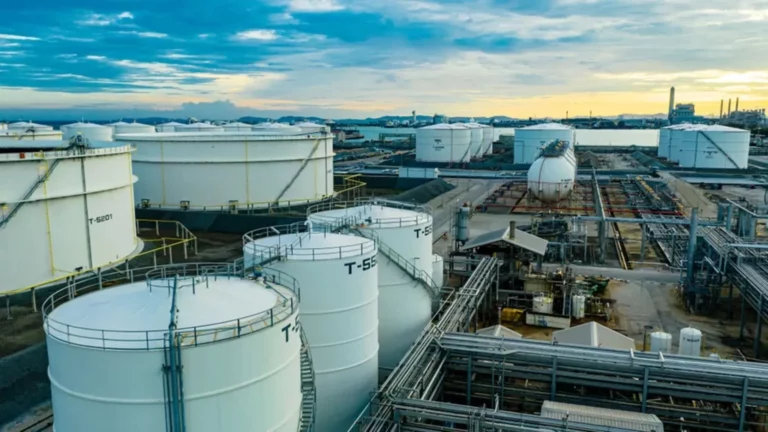Introduction
Regulations and technological compliance are issues that are strictly linked. In a world where energy drives progress, the oil industry and the energy sector face great challenges that go beyond the extraction and distribution of resources; because they are regulated and subject to a series of technological standards and requirements. These regulations are designed to protect the environment, public safety and workers’ rights.
For service companies operating in this sector, compliance with regulations is an imperative for business success. Businesses that do not comply with regulations can face fines, penalties or even the loss of their license to operate.
In this article, we will explore the critical importance of regulations and technological compliance for service companies in this sector, offering valuable insights for management decision making and selecting clients for strategic investments. From innovations to important data, necessary for business success.
Regulations and technological compliance
What are those regulations in the energy industry?
The oil and energy industry is subject to a series of regulations at both the international and national levels. Below are some of the key regulations that impact this industry:
- Environmental protection: Environmental regulations focus on reducing greenhouse gas emissions, protecting natural resources, and preventing pollution. Example: The United States National Environmental Policy Act (NEPA) establishes requirements for assessing the environmental impact of energy projects.
- Public Safety: Public safety regulations are designed to protect workers, the community, and the environment from risks associated with industry exploration, production, and transportation.
- Safety in the oil industry: The Occupational Safety and Health Administration (OSHA) in the United States establishes standards to ensure the safety and health of workers in the oil industry.

- Offshore exploration and drilling regulations: The Regulation of Offshore Energy Exploration and Production (SAFE) Act in the United States regulates offshore activities to prevent accidents and oil spills.
- Compliance with data regulations: The General Data Protection Regulation (GDPR) in the European Union establishes guidelines for the protection of personal data, affecting companies that handle information of European citizens.
- Antitrust laws: In some countries, antitrust laws seek to prevent excessive concentration of power in the energy industry to promote competition and protect consumers.
- Local content regulations: In some oil-producing countries, such as Brazil and Nigeria, there are regulations that require energy companies to give priority to local suppliers and services.
- Greenhouse gas emissions regulations: The Paris Agreement and various national regulations set targets for reducing greenhouse gas emissions, affecting the strategies of companies in the energy sector.
- Licenses and permits: Obtaining licenses and permits for the exploration and production of energy resources is a common requirement, regulated by the competent authorities in each country.
- Worker Rights: Labor regulations focus on ensuring that industry workers have safe and fair working conditions.
Importantly, specific regulations can vary significantly from country to country and are constantly evolving to address new challenges and technological advances in the industry. Companies in the energy sector must stay up to date and comply with these regulations to operate ethically and sustainably.
And what is technological compliance like?
Technology compliance refers to the adoption of technologies necessary to comply with regulations. Technology compliance in the oil and energy industry involves adhering to specific regulations and standards related to the use and implementation of technologies in various operations.
Below are some key aspects of technological compliance in this industry:
- Cybersecurity:
- Companies must implement cybersecurity measures to protect their computer systems and sensitive data.
- Standards such as ISO/IEC 27001 must be followed for information security management.
- Data management:
- Comply with regulations on the collection, storage and processing of data, especially those related to energy exploration and production.
- Adopt ethical and transparent data management practices.
- Responsible innovation:
- Ensure that the implementation of new technologies is ethical and meets legal and environmental requirements.
- Evaluate the impact of innovations on safety, health and the environment before their implementation.
- Privacy and data protection:
- Comply with privacy regulations, such as GDPR, to ensure the protection of personal data.
- Implement data anonymization and encryption practices when necessary.
- Environmental regulations:
- Adhere to environmental regulations related to waste management, emissions reduction and environmental protection.
- Integrate sustainable technologies and environmental practices into operations.
- Operational security:
- Implement technologies that improve operational security, such as IoT sensors for real-time monitoring and early warning systems.
- Comply with safety standards in exploration and drilling.
- Integration of renewable energies:
- Comply with regulations that promote the integration of renewable energy sources in operations.
- Adopt technologies that facilitate the transition towards a more sustainable energy model.
- Transparency and reporting:
- Maintain adequate transparency in the use of technologies and disclose relevant information to authorities and the public.
- Comply with reporting and disclosure requirements established by specific regulations.
- Technological risk assessment:
- Conduct periodic assessments of technological risks and develop contingency plans.
- Comply with specific risk management standards, such as ISO 31000.
- Training and awareness:
- Provide ongoing training to employees on the ethical and safe use of technology.
- Promote awareness of the importance of technological compliance at all levels of the organization.
Technological compliance is not only about adopting new technologies, but doing so ethically, safely and in accordance with current regulations. The successful integration of advanced technologies in the energy industry requires a comprehensive approach that addresses both legal and ethical and environmental aspects.
What is the impact of the regulations?
Regulations have a significant impact on the industry. These regulations have helped reduce greenhouse gas emissions, improve safety, and protect workers’ rights.
For example, the United States Environmental Protection Agency (EPA) has established a series of regulations that have helped reduce greenhouse gas emissions from the oil and gas industry. These regulations have forced companies to invest in more efficient technologies, such as natural gas turbines.
The United States Occupational Safety and Health Administration (OSHA) has also established a number of regulations that have helped improve safety in the oil and gas industry. These regulations have forced companies to implement safety measures, such as gas monitoring systems and emergency response systems.
Success stories
An example is the company Schlumberger, which has developed a technological platform that helps companies comply with environmental regulations. This platform uses sensors and algorithms to collect data on greenhouse gas emissions. The data is then used to generate reports that help companies identify areas for improvement.
New trends in industrial technology
Utilities are constantly developing new technologies to comply with regulations. Some of the most recent innovations include:
- Environmental monitoring systems that use artificial intelligence to identify pollution patterns.
- Security systems that use sensors to detect potential risks.
- Risk management systems that use data to help companies make decisions.

Insight for administrative decision making
Regulations and technological compliance have significant implications for management decision making in service companies, the oil industry and the energy sector. These implications include:
- Risk reduction: Compliance with regulations helps reduce the risks associated with operating in the industry. This includes environmental, safety and labor risks.
- Improving efficiency: Implementing compliance technologies can help businesses improve efficiency. This can lead to cost savings and increased profitability.
- Improved reputation: Companies that comply with regulations have a better reputation among their customers, investors, and stakeholders. This can lead to business opportunities and greater stakeholder confidence.
Insight for selecting clients for strategic investments
Service companies operating in the oil and gas industry must consider regulations and technological compliance when selecting clients for strategic investments. These considerations include:
- The customer’s compliance history: Companies should evaluate the customer’s compliance history to understand their commitment to regulations.
- Customer environmental, safety, and labor risks: Companies should evaluate customer environmental, safety, and labor risks to understand the potential impact of their investment.
- The customer’s ability to comply with regulations: Companies should evaluate the customer’s ability to comply with regulations to understand the risk of non-compliance.
Conclusions
Regulations and technological compliance are essential elements for business success in the oil and gas industry. Service companies operating in this sector must invest in technological compliance to ensure they comply with regulations and protect their interests.
They also have significant implications for managerial decision making and the selection of clients for strategic investments. Service businesses must consider these implications to make informed decisions that will help them achieve success.
Additional tips for service companies in the oil and gas industry:
- Stay up to date on the latest regulations: Regulations in the industry are constantly changing. Companies must stay up to date on the latest regulations.
- Invest in innovative technologies: Innovative technologies can help companies comply with regulations more efficiently and effectively. Companies must invest in innovative technologies to stay at the forefront of the industry.
- Work with expert partners: Companies can work with expert partners for assistance with regulatory compliance. These partners can help companies understand regulations, develop compliance plans, and manage compliance.
Utilities that take a proactive approach to regulatory compliance will be well positioned for success in the oil industry and the energy sector in general.
“Ensure the success of your company in the industry. Invest in technology compliance and make informed decisions today!”
References
Own source


























